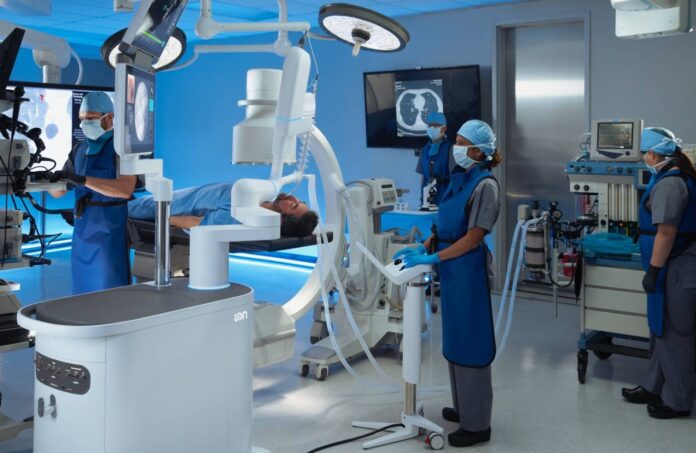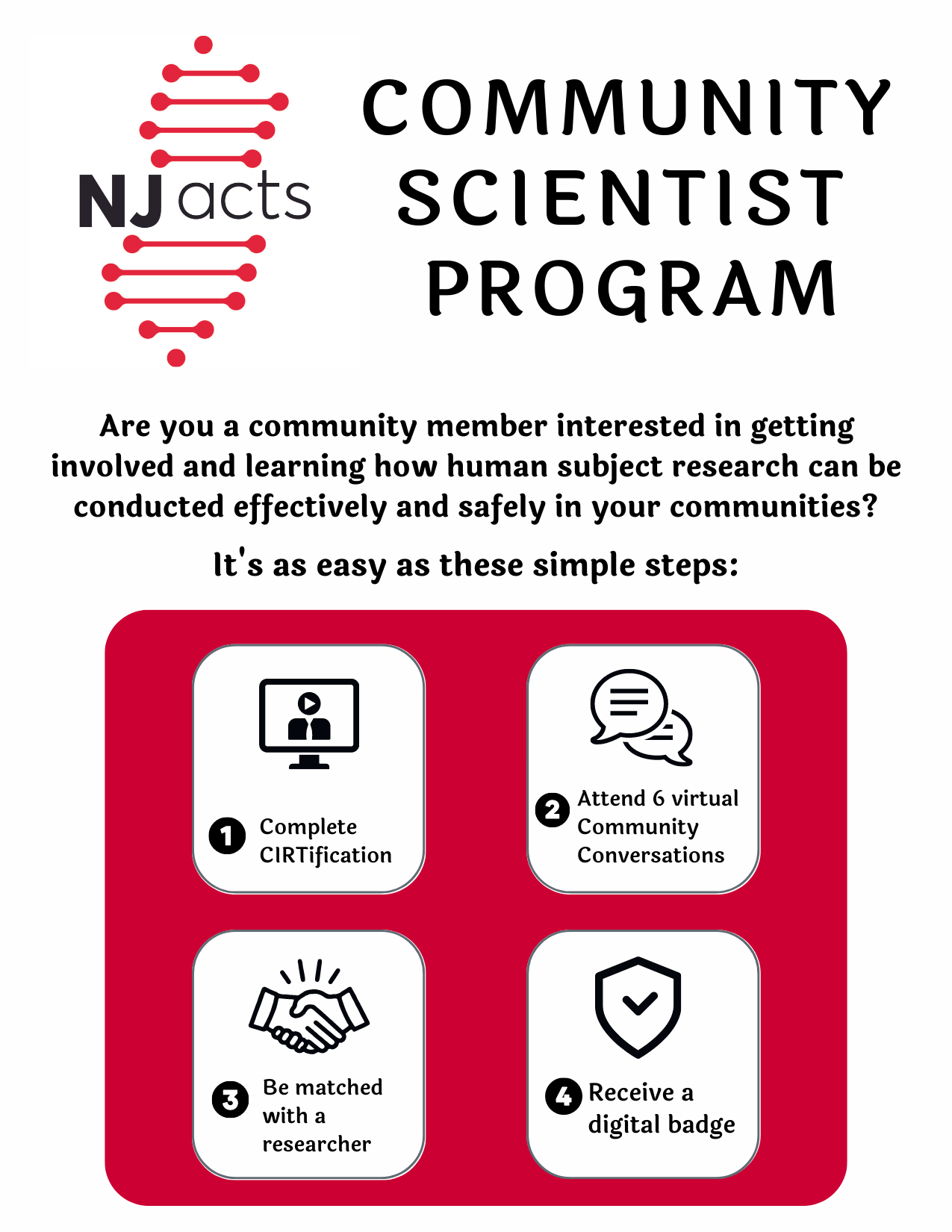180+ networks across 21 NJ counties
COMMUNITY ENGAGEMENT CORE OVERVIEW
NJACTS draws leading academic, industry and community groups together to understand and address the health needs of New Jersey. Central to this is engagement with our community to ensure that our efforts respond to their priorities. Our goal is to conduct research with the New Jersey community, in the community and for the community, and yet, have impact beyond our state’s boundaries.
Stay in Touch!
Join RCommunity!
Join Rutgers Health Service Corps!
Empowering Community-Based Research
Through Cultural and Linguistic Collaboration
- Navigating interpreter-mediated encounters
- Effective translation for research
- Understanding cultural nuances in literacy, trust, and belonging
Through collaboration across disciplines and leveraging expertise within and beyond Rutgers, CrEER ensures that research is inclusive, culturally relevant, and impactful both locally and globally.
👉 Discover how CrEER is shaping the future of community-based research here.
Association for Clinical and Translational Science (ATCS) Membership for Community Members
Did you know that community members are eligible to become members of ACTS through their affiliation with NJ ACTS?
Community members are able to access ACTS’ member benefits, including:
- Discounted registration to the annual Translational Science meeting
- Opportunities to participate in Special Interest Groups and Committees
- Access to the community platform website and more!
Resource for Investigators – CTSA Compendium of D&I Catalogs
Dissemination and implementation (D&I) research focuses on translating evidence-based interventions into real-world settings to improve health outcomes in the broader community.
An open-source CTSA Compendium of D&I Catalogs has been developed by the Clinical & Translational Science Awards (CTSA) Program’s “Advancing Dissemination and Implementation Sciences in CTSAs” working group to support investigators at any stage of their D&I skill-building journey. It provides a curated list of resource catalogs relevant to the conduct of D&I science. The materials include frameworks/theories/models, methods/measures, funding resources, practice resources, training, and health equity resources. Click here to learn more.
CIRTification – A New Alternative to CITI for Community Partners
The rollout of CIRTification at Rutgers has begun. The CIRTification program provides research ethics training alternatives for individuals in community organizations, with limited understanding of conducting human research and protecting potential research participants. This option provides training focused on equipping community partners to conduct human subject research effectively and safely in their communities.
To learn more about the program at Rutgers, please visit this link CIRTification.
NJ ACTS COMMUNITY SCIENTIST PROGRAM
This program is designed to provide researchers with rapid feedback from expert community members to ensure their research projects are culturally appropriate and relevant to the community.
PARTICIPATE IN OUR NEXT COHORT!
For more information, please contact njactscommunity@rwjms.rutgers.edu
NJ HEROES TOO
Through the ongoing New Jersey Healthcare Essential Worker Outreach and Education Study – Testing Overlooked Occupations (NJ HEROES TOO), we have gained a wealth of data on COVID-19’s effects, gleaned valuable learnings on attitudes toward testing and vaccines, and improved COVID-19 awareness in underserved communities.

Community Blog

New technology helps Rutgers Cancer Institute, RWJUH clinicians detect lung cancer sooner.
An innovative technology, ion robotic bronchoscopy, that can help interventional pulmonologists and thoracic surgeons diagnose lung cancer earlier is available at Robert Wood Johnson University Hospital together with Rutgers Cancer Institute in New...

YWCC Expands K–12 Computing and Math Outreach Across Newark.
Technology for the greater good of society. That is a principal tenet of the NJIT mission, and one that is carried forward by the university’s Ying Wu College of Computing (YWCC) and its many initiatives to increase education and opportunity for K-12 students in the...
NJACTS Community Engagement Core Available Services
Virtual Community Engagement Salon The NJ ACTS CEC Virtual Community Engagement Salons bring researchers together with patients, community members and health care stakeholders to actively participate in cross-talk — to incubate ideas for engagement in the...

Professor’s Research into Human Genetics Points to New Ways of Treating a Painful Gastrointestinal Disease.
A Rutgers scientist whose research is opening up new possibilities for treating Inflammatory Bowel Disease (IBD) has received the 2025 Grossman Innovation Prize from the School of Arts and Sciences. The prize, which provides financial support to faculty members...

Modernizing Health Records for the Most Vulnerable.
Over a decade ago, an NJIT health care startup took up a daunting challenge: to train 5,000 primary care providers in the state to adopt electronic health record systems that would allow them to better track their patients, improve their quality of care and securely...
For Rutgers Health’s First Chancellor, Mentoring Was the Mission.
When Brian Strom looks back on his years as the first chancellor of Rutgers Health, he could easily point to major achievements – attracting billions in research support or building a top-tier academic health system – as defining his legacy. But as he readies to leave...


